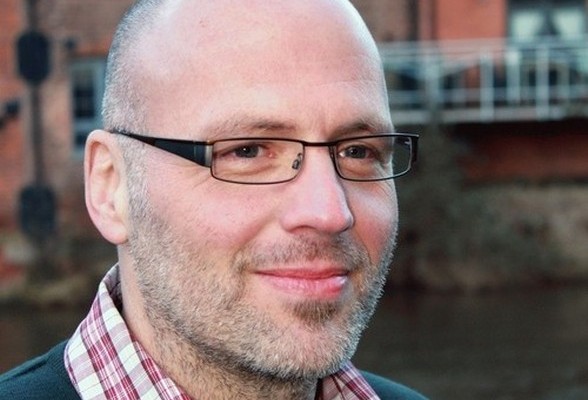
Posted on 27th May 2014
Welcome to Autism&Uni
Hello, my name is Marc Fabri and I am a lecturer and researcher at Leeds Metropolitan University, a higher education institution in the vibrant city of Leeds in the north of England. I am project leader for Autism&Uni.
My first introduction to autism research was during PhD studies around 2002 when research colleagues explored the use of technology to support students on the autism spectrum with their education. Leeds Met has a long history of involvement in autism research and activism. For many years the university-wide Disability Research Group organised annual conferences and in 2012 published a book on ‘Disabled Students in Education: Technology, Transition and Inclusivity‘.
The key word in that book title is Transition. Going from school into higher education is one of the major transition points in life – choosing a course, making new friends, functioning in new environments, getting things wrong, discovering your talents, being more independent. Such a transition is challenging and that’s why we’d like to ensure there is effective support available for students on the autism spectrum.
Within the Autism&Uni project, we’re in excellent company. There are partners from 5 European countries, each providing a different perspective on the understanding of autism in their country and ideas on how the transition from school to university can be supported.
Working closely with the project team is Penny Andrews, the Autism&Uni Research Assistant. Penny has Asperger Syndrome, and in common with many women was diagnosed later in life. She knows a lot about the issues Autism&Uni aims to tackle. Whilst still un-diagnosed, she dropped out of two highly respected UK universities before eventually graduating as a mature student with the Open University. Penny is now a Masters student at the University of Sheffield and aims to start a PhD in the near future.
It is vital to have people on the autism spectrum involved in the project, right from the start. Too often the focus is on the role of parents or disability services, asking them what is good for the person on the autism spectrum. Instead we have adopted a holistic and participatory approach, giving the end users real influence in designing solutions for the challenges they are facing.
Autism&Uni starts with a comprehensive mapping exercise designed to help us understand the challenges of entering and succeeding in higher education faced by students on the autism spectrum. If you are a young learner on the autism spectrum, or their parent, teacher or disability advisor, or you’ve had past experience studying in higher education, we’d like to invite you to take part in our research. Visit ourGet Involved page to find out how you can make a difference to the future higher education landscape for students on the autism spectrum.
Please look out for future blog posts from the project team and special guests, where we will introduce people involved with the project, share our news and encourage discussion.




Soy madre de una adolescente asperger, Trabajadora Social, Mediadora Familiar y Docente de Educación Superior en Chile. Me gustaría participar de su experiencia de investigación, o en lo que se requiera. Creo que falta un largo camino por recorrer aun, para lograr la integración de los jóvenes de espectro autista, especialmente en su incorporación y permanencia en la educación superior.
Why is the USA not included on this website? I wish the USA was included on this website, because some colleges in the USA do not know how to best accommodate students with autism and Aspergers. Some colleges in the USA are also starting to get students with autism and Asperger’s syndrome. Some colleges in the USA also do not know how to best or not at all accommodate the visual learners with autism and Aspergers whom may not be able to learn in an auditory way. I am not saying all students with autism and Aspergers learn visually, but there is a large percentage of students with autism and Aspergers whom learn in a visual way, but struggle with learning in an auditory way, like for example in an auditory lecture class and will not learn anything or much at all without written instruction with or without still images included. This is coming from a former student with autism and dyslexia who failed out of a public 4 year university in the USA who’s disability center, teachers and tutors whom did not know how to help me as I am more of a visual learner.
Dear Brittany,
Many thanks for your comment. Autism&Uni is a European-funded project and as such, our remit is to explore opportunities and create resources for the European higher education context. Having said that, I expect that what we produce will also be useful for students with autism in other countries so watch this space! Our research is very much informed by studies from all over the world, and we have found some really good material and case studies from American colleges/universities.
Marc